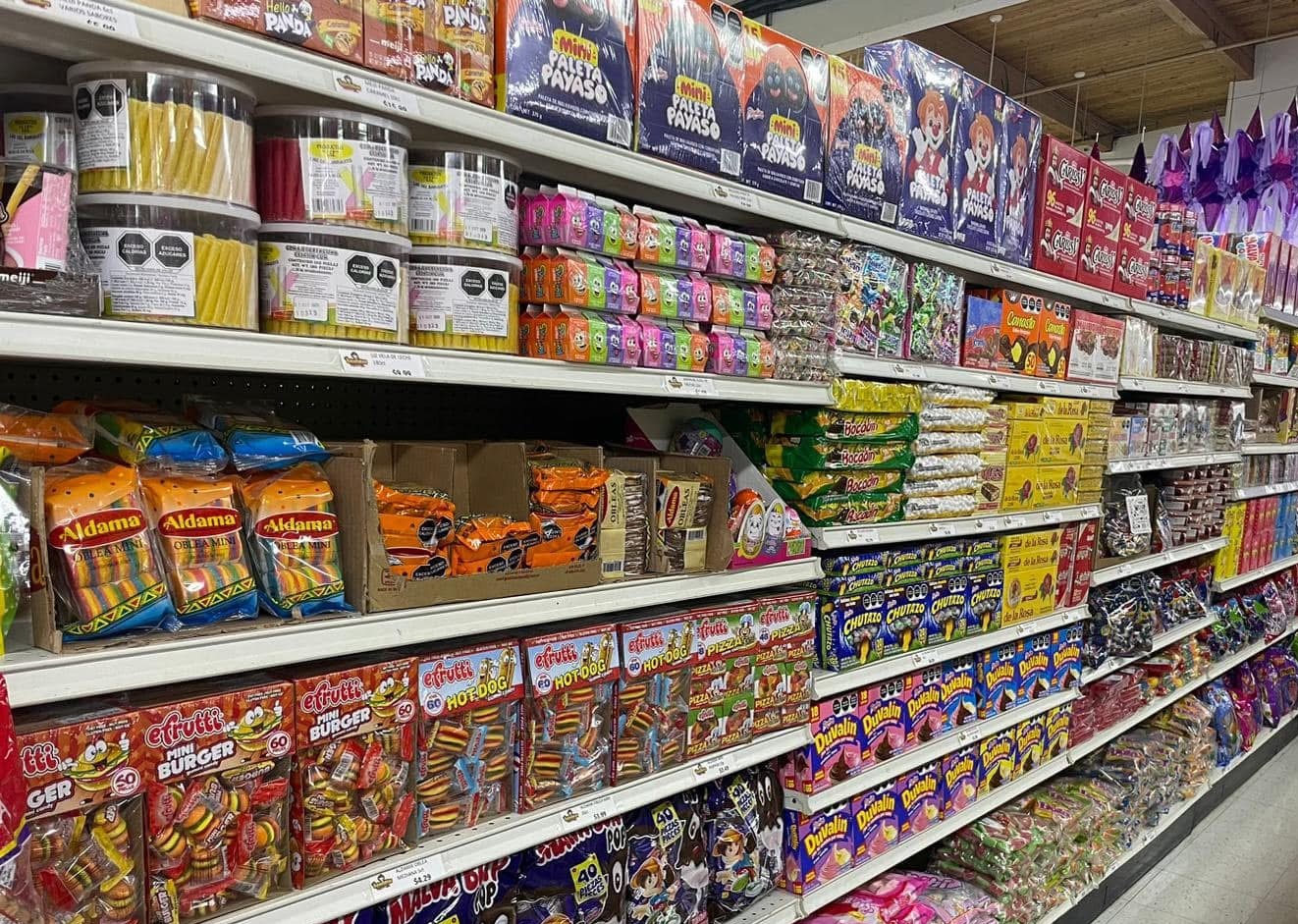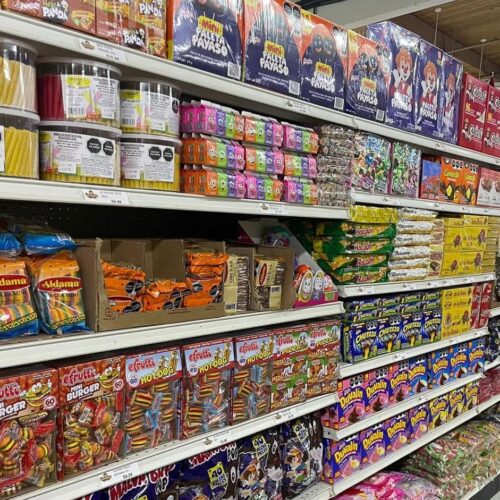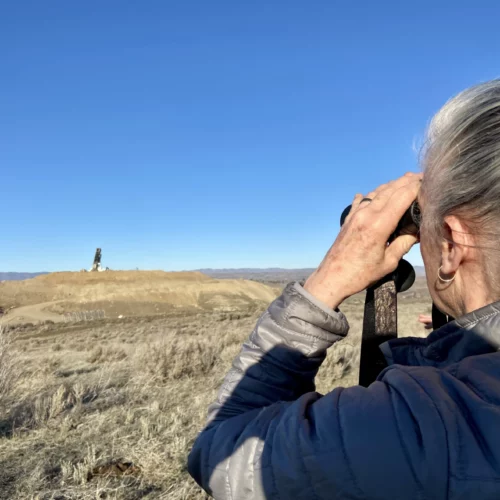
Small Latino grocery store owners in the Northwest talk tariff impacts
Listen
(Runtime 3:34)
Read
Going into Jose Esparza’s store in Portland, Oregon is like taking a little trip from Mexico to South America.
Esparza’s store — El Campesino PDX — sells products from Latin American countries.
“We have (products) from different countries. Colombian criolla potatoes. We have Central American products such as loroco (a flower used in traditional Salvadoran cuisine), chiltepin. We have tostones, we have ñame, which Nicaraguans and Costa Ricans look for,” Esparza said in Spanish.
The store also has Argentina’s yerba mate and dulce de leche, as well as frozen fruits and vegetables that are well known in that part of the world.
Esparza, like other small business owners around the country, has been closely monitoring changes since the Trump administration began discussing tariffs for products from other countries.
According to the Americas Society/Council of the Americas, on April 9, President Trump announced that all countries would face a base tariff of 10% for 90 days.
Esparza said his suppliers haven’t increased prices yet. But those suppliers are watching what could happen with tariffs, as prices could change.
“I do not know if, in the medium term, for example, the Peruvian, Colombian and Argentine products could be affected a little more directly,” he said in Spanish.
Esparza said there is uncertainty. He has seen it among his buyers.
He said suppliers aren’t wanting to buy the same products they have been buying because they think that consumers might change how they spend money.
Alejandro Jiménez is the owner of Kabana King supermarket, which has stores in Richland and Kennewick, Washington. Jiménez mainly sells products from Mexico. That includes items like traditional Mexican pottery, but people can find things from other countries there.
Jiménez said smaller grocery stores could feel the brunt of tariff troubles.
“As small businesses, we try to bring in the products that customers need. But with tariffs, it could make it difficult for everybody,” said Jiménez in Spanish.
“At the end of the day, the consumer pays the consequences,” he added.
With the discussions on tariffs, Jiménez has been talking with his suppliers, who are looking for other places to source their products for less.
Both Esparza and Jiménez’s businesses are small and family-owned. They said the impact of economic decisions are different for them compared to large grocery chains that bring similar products into the country.
“If people go to a large grocery store, they want to come here and find that same price, when Walmart, for instance, buys thousands of dollars in the same product”, Esparza said. “That’s something people don’t understand. So, we fight with the margin.”
Esparza explained his products’ suppliers are generally on the East Coast, in states like Florida and New Jersey, where large Latino and Hispanic communities are located. Companies there have distributors on the West Coast, and those distributors get products to business owners in the Northwest.
Esparza also said the pressure would be on the consumer.
“If I get a 10% increase on a product, that 10% is not going to come out of my pocket,” he said. “Likewise, the person who sells it to me, it will not come out of his pocket, but he passes the increase on to me, and I must pass the increase on to the customer.”
Christopher Clarke, a professor of economics at Washington State University, has been explaining topics like tariffs to his followers on his social media.
Clarke said tariffs are a tax on any goods that come into a country, like a sales tax. It applies to imported goods.
“So, all the inputs, the raw, everything that crosses those borders now have a 10% price increase because of the tariffs,” Clarke said.
Clarke said that the minimum 10% tariff currently in place applies to everybody, regardless of whether the U.S. buys more from a country or if a country buys more from the U.S.
“The issue with many Latin American countries is that they actually buy more from the United States than what we buy from them. We have a trade surplus with many Latin American countries,” Clarke said.
A basic explanation of tariffs would be that companies importing items into the U.S. pay this tax to the U.S. government. But Clarke said the equation could become more complicated.
Companies in the U.S. could attempt to negotiate the price, which may not necessarily be feasible in a competitive market.
Last week, U.S. Sen. Patty Murray met with some Washington state business owners in Seattle, and spoke about how tariffs are impacting small businesses.
“Trump’s ham-fisted trade war is threatening livelihoods here in Washington state”, Murray said in a written statement. “Small businesses are worrying about whether they can keep their doors open without laying people off, families that are already scrambling to pay the bills are worried about rising costs at the grocery store, and our farmers are deeply concerned about retaliatory tariffs from other nations in response to Trump’s tariffs.”
Jimenez, the owner of Kabana King, said those making the decisions “should try to do their best to arrange this in the best possible way for the consumer and for us, small business owners.”



















